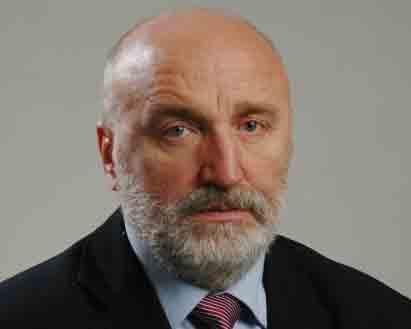Latvia's "two" prime ministers differ on state of the nation
 Riga - A difference of opinion became evident Monday between Latvia's outgoing and incoming prime ministers when acting prime minister Ivars Godmanis, who resigned on February 20, denied the Baltic state was on the verge of bankruptcy, as claimed by prime minister-designate Valdis Dombrovskis.
Riga - A difference of opinion became evident Monday between Latvia's outgoing and incoming prime ministers when acting prime minister Ivars Godmanis, who resigned on February 20, denied the Baltic state was on the verge of bankruptcy, as claimed by prime minister-designate Valdis Dombrovskis.
Speaking at a news conference held jointly with acting finance minister Atis Slakteris, Godmanis said Dombrovskis' statement was "just rhetoric" with purely political motivations behind it.
Slakteris said the country had been closer to bankruptcy in November 2008 than at present, when the government stepped in to prevent the collapse of Latvia's second largest bank, Parex Banka.
"If anyone says this is the hardest moment for Latvia in financial terms, they are talking nonsense. The country was in a more difficult financial state when we were taking over the bank," Slakteris said.
Dombrovskis had claimed there was a hole of around 700 million lats (1.2 billion dollars) in Latvia's state finances that would have to be paid for by even more drastic cuts in public spending than are already planned.
While Godmanis and Slakteris argued, Dombrovskis continued negotiations with Latvia's patchwork of political parties in his attempts to stitch together a viable coalition.
His task has not been made any easier by demands from most parties to control particular ministries, which in some cases are regarded virtually as their personal fiefdoms.
Godmanis' own Latvia First/Latvia's Way party has threatened not to join the coalition unless it retains control of the big-spending transport ministry, while the Greens and Farmers' Alliance views control of the agriculture ministry as its birthright.
Dombrovskis hopes to be able to announce the composition of a new coalition by March 13, after which he will face an approval vote in the Latvian parliament.
After more than a decade of breakneck growth, the Latvian economy plunged into the European Union's deepest recession in 2008, with official forecasts suggesting GDP will shrink by 12 per cent in 2009.
In December 2008, Godmanis and Slakteris secured a 7.5-billion- euro (9.5-billion-dollar) economic bail-out package from the International Monetary Fund, World Bank, European Union and other bodies. Payment is conditional on the introduction of wide-ranging economic reforms. dpa